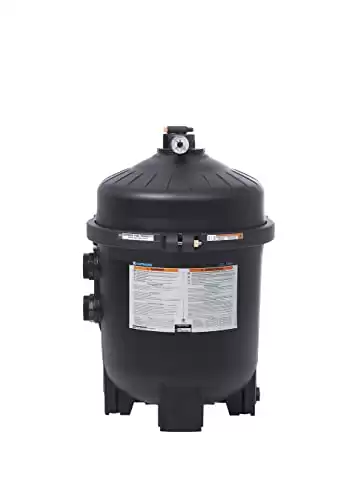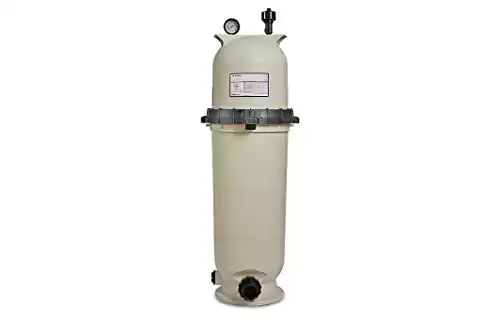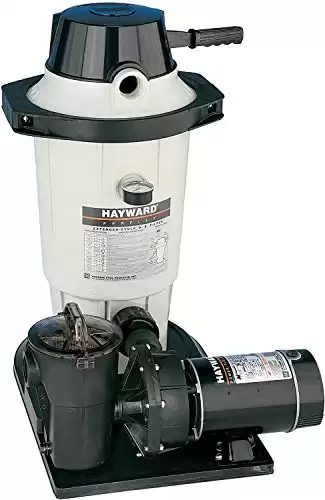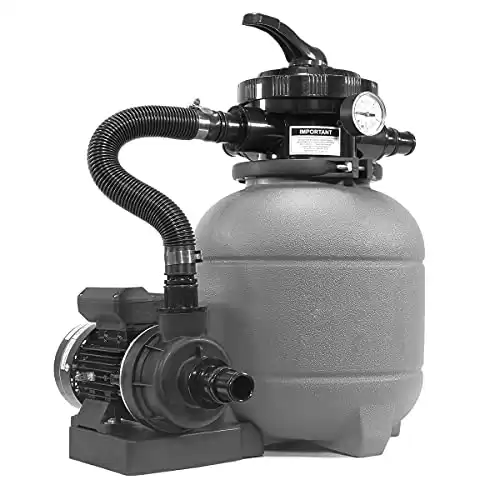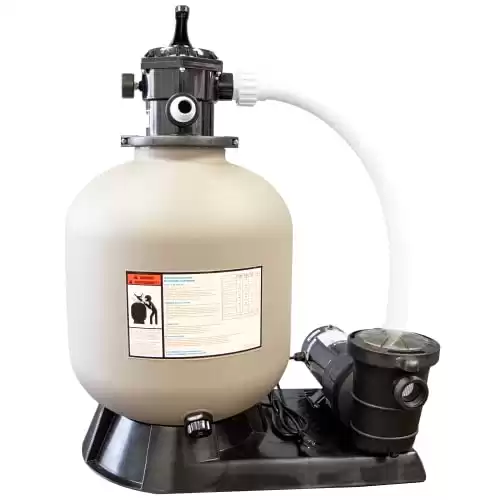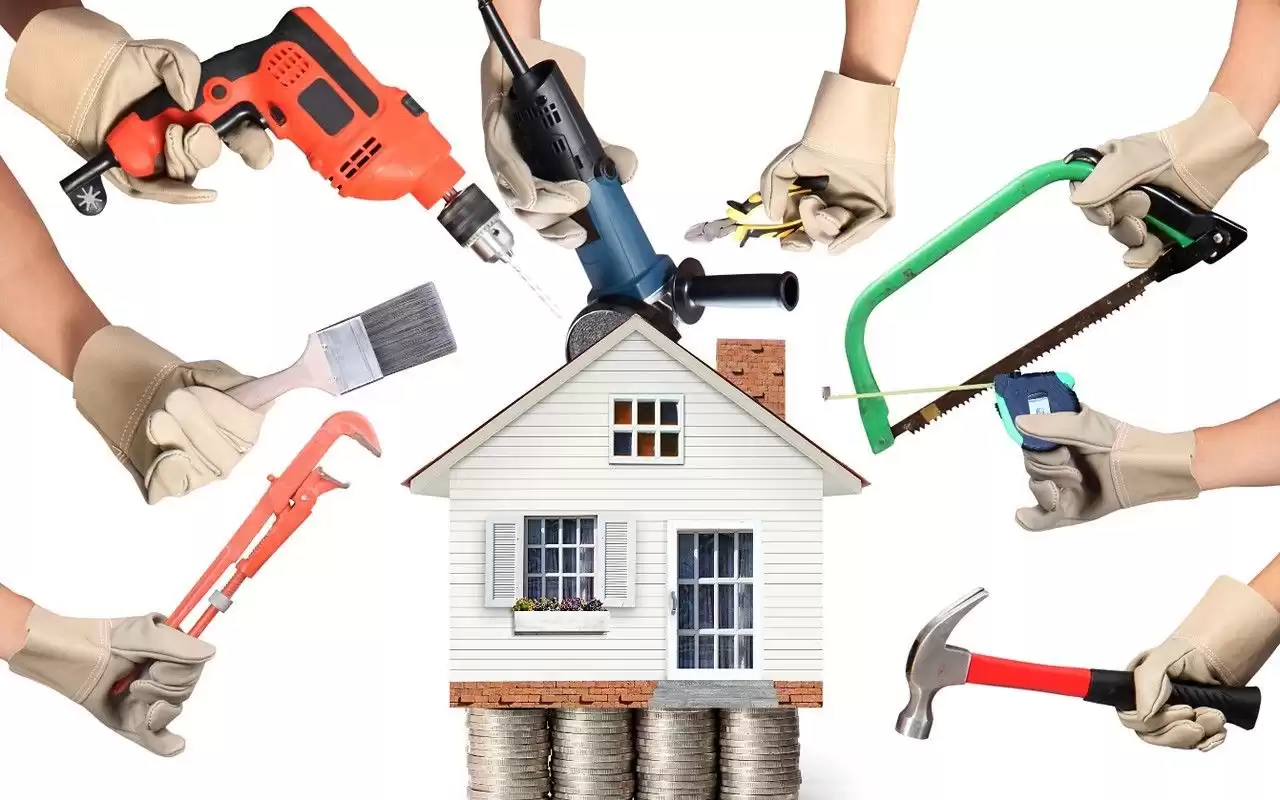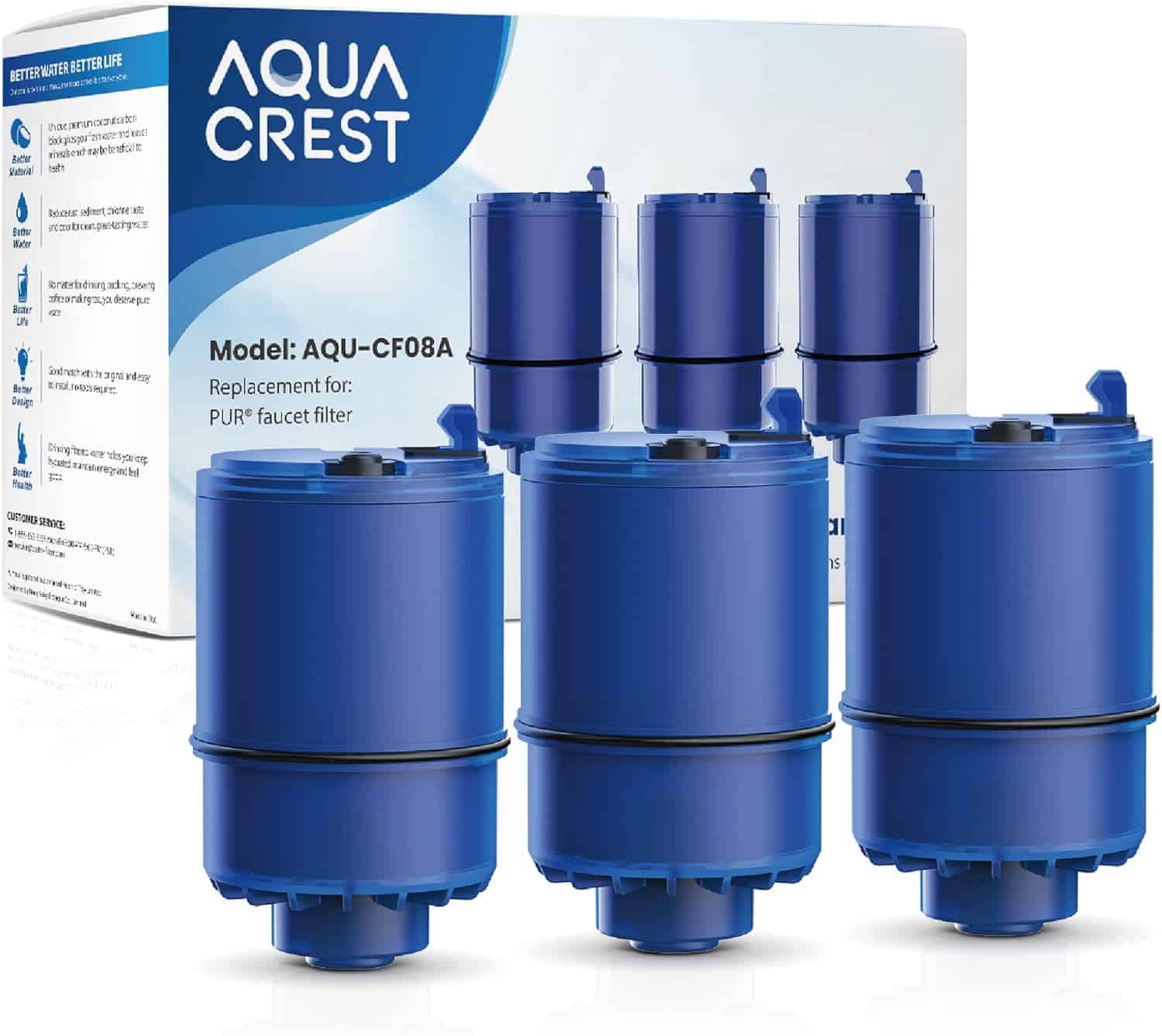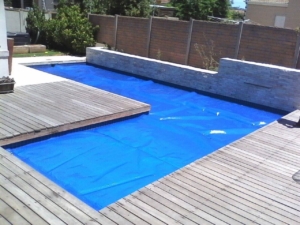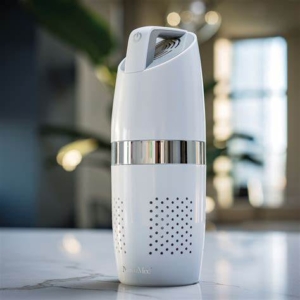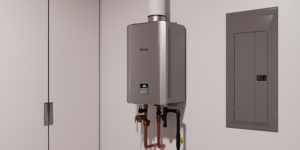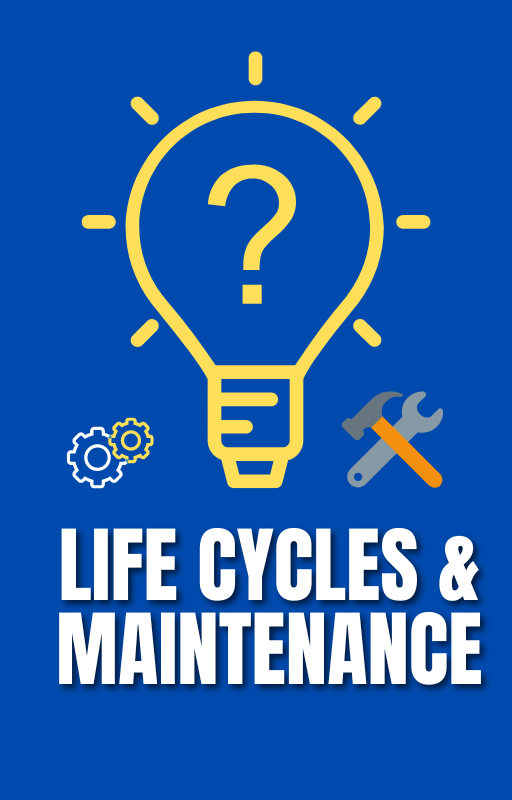The Ultimate Guide to Choosing the Best Pool Filter Pump
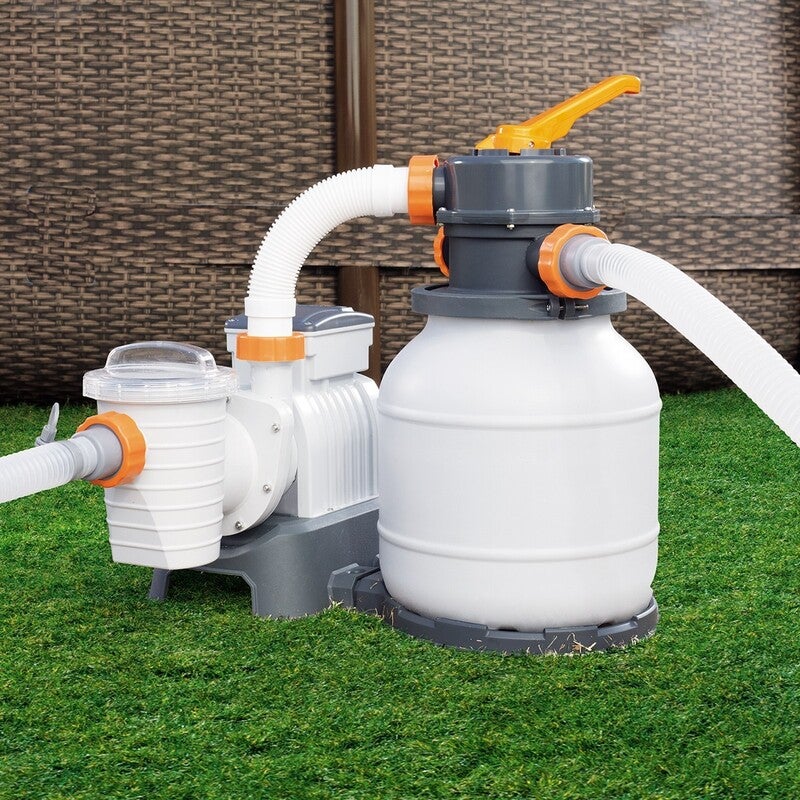
Welcome to the ultimate guide that will help you choose the best pool filter pump for your swimming pool. Maintaining clean and clear water and selecting a pool filter pump are factors to consider for an enjoyable swimming experience. This guide will explore the various types of pool filter pumps, factors to consider, features and specifications, budget considerations, brand research, maintenance tips, and more. Let’s dive in!
Understanding the Role of a Pool Filter Pump
A pool filter pump maintains the cleanliness and clarity of your pool water. Its primary function is removing debris, dirt, and contaminants, ensuring your pool remains inviting and hygienic. By continuously circulating the water through the filtration system, the filter pump captures particles of varying sizes, improving water quality and preventing the growth of algae and bacteria.
Types of Pool Filter Pumps
Several types of pool filter pumps are available on the market, each with advantages and considerations.
1. Sand Filter Pumps:
– Description: Sand filter pumps use a bed of specially graded sand to trap and remove impurities from the pool water.
– Pros: Effective filtration, suitable for larger pools, low maintenance, and long-lasting.
– Cons: Slower filtration process, requires periodic backwashing.
2. Cartridge Filter Pumps:
– Description: Cartridge filter pumps utilize replaceable filter cartridges made of pleated fabric to capture debris and contaminants.
– Pros: Excellent filtration, easy to clean and maintain, suitable for most pool sizes, no backwashing required.
– Cons: Higher upfront cost than sand filters; cartridges require periodic replacement.
3. Diatomaceous Earth (DE) Filter Pumps:
– Description: DE filter pumps use powdered fossilized algae called diatomaceous earth as a filtering medium.
– Pros: Superior filtration, captures even the tiniest particles, suitable for high-demand pool environments.
– Cons: Requires periodic backwashing and replenishing of DE powder, higher maintenance than other types.
Here is a list of the five pool filter pumps:
- Hayward ProGrid DE Filter
- Pentair 160317 Pool Filter Pump
- Hayward Perflex 1 HP Above Ground Pump
- ExtremepowerUS 12″ Pool Sand Filter
- Hydrotool by Swimline Pool Sand Filter Pump
Factors to Consider When Choosing a Pool Filter Pump
When selecting a pool filter pump, several important factors should be considered to ensure optimal performance and compatibility with your pool:
1. Pool Size and Capacity:
– Assess your pool’s size and water capacity to determine the appropriate filter pump size and flow rate.
Let’s say you have a pool that measures 20 feet in length, 10 feet in width, and 5 feet in depth. To assess your pool’s size and water capacity, calculate its volume.
The volume of a rectangular pool can be calculated by multiplying its length, width, and depth. In this case:
Volume = Length × Width × Depth = 20 ft × 10 ft × 5 ft = 1000 cubic feet
Next, you need to convert the volume from cubic feet to gallons, as it’s a commonly used unit for pool capacity. Since 1 cubic foot is approximately equal to 7.48 gallons, you can calculate the water capacity as follows:
Water Capacity = Volume × Conversion Factor = 1000 ft³ × 7.48 gallons/ft³ = 7,480 gallons
Now that you know your pool’s water capacity is 7,480 gallons, you can determine the appropriate filter pump size and flow rate. Generally, choosing a filter pump that can circulate the pool water at least once every 8 hours is recommended. To calculate the required flow rate, divide the water capacity by 8:
Flow Rate = Water Capacity / Circulation Time = 7,480 gallons / 8 hours = 935 gallons per hour
Based on this calculation, you would need a filter pump with a flow rate of approximately 935 gallons per hour to ensure proper water circulation and filtration for your pool.
2. Filtration Efficiency and Maintenance:
– Consider the filtration efficiency of different filter pump types and the required maintenance tasks, such as backwashing or cartridge replacement.
Here are the different types of pool filter pumps commonly used, along with their filtration efficiency rates and required maintenance tasks:
-
Sand Filter Pump:
- Filtration Efficiency: Sand filters are known for their high filtration efficiency. They can effectively remove particles down to 20 to 40 microns.
- Maintenance: Sand filters require periodic backwashing to remove trapped debris and regenerate the filter media. The frequency of backwashing depends on factors such as pool usage and water quality. The sand media must also be replaced every 5 to 7 years, depending on its condition.
-
Cartridge Filter Pump:
- Filtration Efficiency: Cartridge filters provide excellent filtration and can trap particles as small as 10 to 20 microns.
- Maintenance: Cartridge filters require periodic cleaning or replacement of the cartridges. The frequency of cleaning or replacement depends on pool usage and water quality. Cartridges need to be cleaned or replaced every 1 to 3 years.
-
Diatomaceous Earth (DE) Filter Pump:
- Filtration Efficiency: DE filters offer the highest filtration efficiency among the three types. They can capture particles as small as 2 to 5 microns.
- Maintenance: DE filters require regular backwashing and replenishment of the DE powder. The frequency of backwashing and adding new DE powder depends on the pressure gauge readings and water clarity. Additionally, the DE filter grids need to be cleaned and inspected annually.
| Product Image | Product Name / Price / Primary Button |
|---|---|
3. Pump Power and Turnover Rate:
– Determine the required pump power and turnover rate based on your pool’s size and the desired water circulation rate.
Let’s say you have a pool with the following dimensions: 30 feet in length, 15 feet in width, and 6 feet in depth. You want to determine the required pump power and turnover rate based on your pool’s size and the desired water circulation rate.
First, calculate the pool’s volume using the formula:
Volume = Length × Width × Depth Volume = 30 ft × 15 ft × 6 ft Volume = 2,700 cubic feet
Next, convert the volume from cubic feet to gallons:
Water Capacity = Volume × Conversion Factor Water Capacity = 2,700 ft³ × 7.48 gallons/ft³ Water Capacity = 20,136 gallons
Now, determine the desired turnover rate. The turnover rate refers to the time it takes for the pump to circulate the entire pool water volume. The general recommendation is to have a turnover rate of 8 hours for residential pools.
Turnover Rate = 8 hours
To calculate the required flow rate, divide the water capacity by the turnover rate:
Flow Rate = Water Capacity / Turnover Rate Flow Rate = 20,136 gallons / 8 hours Flow Rate ≈ 2,517 gallons per hour
Now that you have the required flow rate, you can determine the pump power needed. Pump power is typically measured in horsepower (HP) or watts.
The specific pump power required can vary depending on pool design, plumbing setup, and desired flow rate. However, as a general guideline, a 1 HP pump can handle approximately 2,500 to 3,000 gallons per hour.
Based on the desired flow rate of approximately 2,517 gallons per hour, a 1 HP pump should be sufficient for your pool.
Remember that these calculations are general guidelines, and it’s always recommended to consult with a pool professional or refer to the manufacturer’s specifications to ensure you select the appropriate pump power for your specific pool setup.
Evaluating Filter Pump Features and Specifications
1. Variable Speed Options:
– Explore filter pumps with variable speed settings to optimize energy efficiency and water circulation.
2. Energy Efficiency and Noise Levels:
– Look for energy-efficient filter pumps that operate at low noise levels to enhance your pool experience.
3. Filter Pump Capacity and Plumbing Compatibility:
– Ensure that the filter pump’s capacity aligns with your pool’s needs and is compatible with your existing plumbing setup.
Budget Considerations and Long-Term Cost Analysis
1. Initial Cost vs. Long-Term Expenses:
– Weigh the initial cost of the filter pump against its long-term operational expenses to find the right balance for your budget.
2. Energy Efficiency and Cost Savings:
– Consider energy-efficient options that may result in significant cost savings over the life of the filter pump.
Researching and Comparing Pool Filter Pump Brands
1. Popular and Reputable Brands:
– Research well-known brands known for manufacturing reliable and high-quality pool filter pumps.
2. Customer Reviews and Warranties:
– Read customer reviews and evaluate the warranties offered by different brands to make an informed decision.
Maintenance and Care Tips for Pool Filter Pumps
1. Regular Cleaning and Maintenance:
– Learn essential maintenance practices to ensure your pool filter pump’s longevity and optimal performance.
Here’s a general guide on how to maintain a pool filter pump:
- Regular Cleaning: Depending on the type of filter pump (sand, cartridge, or DE), regular cleaning is necessary to remove debris and maintain efficiency.
- Sand Filter: Backwash the filter according to the manufacturer’s instructions. This process involves reversing the water flow to flush out trapped debris from the sand media.
- Cartridge Filter: Remove the cartridges and rinse them with a hose to remove accumulated dirt and debris. Periodically, cartridges may need to be soaked in a filter cleaner solution or replaced, as recommended by the manufacturer.
- DE Filter: Backwash the filter as per the manufacturer’s instructions. After backwashing, add a fresh layer of DE powder to the filter grids following the manufacturer’s guidelines.
- Monitor Pressure Gauge: Most filter pumps have a pressure gauge that indicates the pressure inside the filter system. Keep an eye on the pressure gauge and note any significant increases in pressure, as it may indicate the need for cleaning or maintenance.
- Inspect and Replace O-rings or Gaskets: O-rings or gaskets ensure proper sealing of filter pump components. Regularly inspect them for wear, cracks, or damage. If necessary, replace the O-rings or gaskets to prevent leaks.
- Maintain Proper Water Chemistry: Maintaining the right water chemistry is crucial for the longevity and efficiency of the filter pump. Regularly test and balance the pool water’s pH, total alkalinity, and chlorine levels. This helps prevent scaling, clogging, and other issues that can affect the filter pump’s performance.
- Schedule Professional Maintenance: It’s a good idea to have a professional pool service or technician inspect and service your pool filter pump at least once a year. They can perform more in-depth maintenance tasks, such as dismantling and cleaning internal components, inspecting valves and fittings, and ensuring the system is operating optimally.
Remember to always refer to the specific maintenance guidelines provided by your pool filter pump manufacturer, as different models may have slight variations in maintenance requirements. Regular and proper maintenance of the pool filter pump will help ensure clean and clear water and extend the lifespan of the equipment.
2. Troubleshooting and Common Issues:
– Address common troubleshooting issues and learn how to resolve them to keep your filter pump running smoothly.
Here are the top 10 frequently asked questions (FAQs) about choosing the best pool filter pump along with their answers:
1. Q: What is the importance of a pool filter pump?
A: A pool filter pump is essential for maintaining clean and clear water by removing debris, dirt, and contaminants that can affect water quality and hygiene.
2. Q: How does a pool filter pump work?
A: A pool filter pump circulates the water through a filtration system, where impurities are trapped and removed, ensuring the water remains clean and clear.
3. Q: What are the different types of pool filter pumps?
A: The main types are sand filter pumps, cartridge filter pumps, and diatomaceous earth (DE) filter pumps. Each type has its own advantages and considerations.
4. Q: How do I choose the right pool filter pump for my pool size?
A: Consider the size and water capacity of your pool when selecting a filter pump. Ensure the pump’s flow rate matches the pool’s requirements for efficient filtration.
5. Q: Which type of pool filter pump provides the best filtration?
A: All types (sand, cartridge, and DE) can provide effective filtration, but DE filters are known for capturing the smallest particles and providing superior clarity.
6. Q: How often should I clean or replace the filter media in my pool filter pump?
A: The frequency of cleaning or replacing the filter media depends on the type of filter pump and the pool’s usage. Generally, it’s recommended to clean or replace as per the manufacturer’s guidelines.
7. Q: What features should I look for in a pool filter pump?
A: Important features include variable speed options, energy efficiency, low noise levels, suitable pump capacity, and compatibility with your pool’s plumbing system.
8. Q: Are there any energy-efficient options available for pool filter pumps?
A: Yes, many pool filter pumps now come with energy-efficient features like variable speed settings or energy-saving modes to reduce power consumption.
9. Q: How much does a good pool filter pump cost?
A: The cost of a pool filter pump can vary depending on factors such as brand, type, capacity, and additional features. It’s essential to consider the long-term cost-benefit ratio rather than just the upfront cost.
10. Q: How can I maintain and troubleshoot my pool filter pump?
A: Regular cleaning, proper maintenance, and following the manufacturer’s guidelines are essential for maintaining a pool filter pump. If you encounter issues, refer to the troubleshooting section in the product manual or consult a professional if needed.
Summary: Best Pool Pump Filters
Choosing the best pool filter pump is crucial for maintaining clean and clear water in your swimming pool. By understanding the role of a pool filter pump, considering factors such as pool size and filtration efficiency, evaluating features and specifications, budget considerations, researching brands, and practicing proper maintenance, you can make an informed decision that will enhance your swimming experience for years. Remember to choose a pool filter pump that meets your needs and requirements. Enjoy sparkling, crystal-clear water in your pool!

